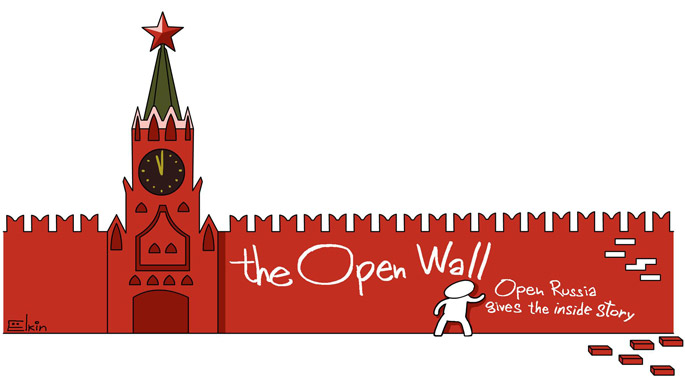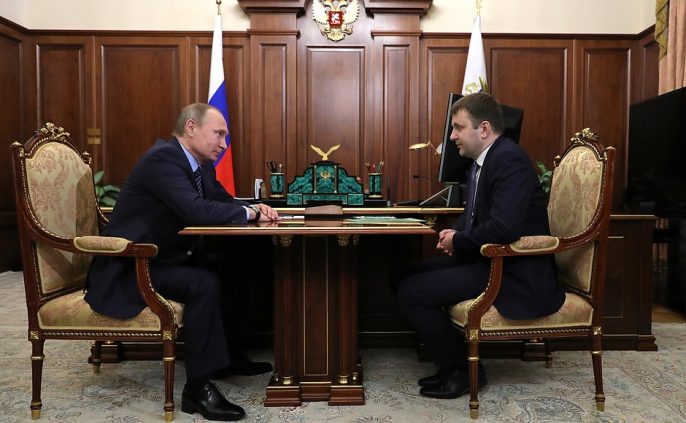The fifth-column breeding ground

The fifth-column breeding ground
President Putin has appointed a new minister of economic development. But why appoint somebody from a hotbed of liberalism?

When the Soviet Union collapsed, he was nine years old. When the parliament building in Moscow was shelled by tanks and the new constitution was adopted, he was eleven. At twelve, he heard about the war in Chechnya, at fifteen about the default and the collapse of the rouble. In March 2000, aged eighteen, he voted in a presidential election for the first name. That year’s ballot paper bore the new name of Vladimir Vladimirovich Putin.
We are talking about Maxim Oreshkin, Russia’s new minister of economic development, who replaced Alexei Ulyukayev after the latter’s sensational house arrest for allegedly soliciting a bribe of two million dollars from Rosneft and the omnipotent Igor Sechin, who would probably crumple a train in a head-on collision. “Allegedly” because many unanswered questions remain. Even opponents of the “liberal” minister (note that in the official jargon of the Russian government, a “liberal” is anyone who adheres to a relatively normal world view and does not seek to plunge the country into the Middle Ages) admit that a kickback of $2 million on a deal worth $5 billion is at the level of a provincial pen-pusher or a fool.
Ulyukayev did not give the impression of being a fool. But in any case his position was vacant, and Putin offered it to a guy who was a first-year undergrad when Putin himself took over the reins of government. Maxim Oreshkin is 35 and – the cherry on the cake – a graduate of the Higher School of Economics, a hotbed of liberalism (real liberalism, not the Russian version). He is the first minister to come from the HSE, which is commonly referred to as a “fifth-column breeding ground.” Predictably, Kremlinologists began searching for court intrigues: what does it mean? Is the economy in such a mess that patriotic rhetoric is out and young technocrats able to fix everything in silence are in? Is it a signal emanating from the (more liberal?) team of Sergei Kiriyenko inside the Presidential Administration? Is it a piece in the puzzle leading up to the 2018 elections?
There is an official reason why Mr Oreshkin has been appointed, which you can read here. Honestly, we didn’t make it up; this isn’t a spoof!
There is, however, a simpler explanation that will disappoint conspiracy theorists of all stripes. It goes like this: Putin has simply run out of people. That’s it. The KGB, Leningrad State University, and Sobchak-era stream of personnel has run dry, so too has the Ozero cooperative and other “friends of friends.”
Putin’s recent appointments of former security officers to the post of governor were not really intended to make fun of the provinces (in the manner of the Roman emperor Caligula, who made his favourite horse a consul in the Senate). No, it is just a graphic illustration of how depleted the talent pool has become. It is impoverished even more by the fact that, with a few rare exceptions, no one in the Russian political and business elite has gone away. Even if someone is grudgingly forced out by public scandal, there’s always a cosy place as the deputy head of someone’s pocket bank waiting. And vice versa.
In short, there’s no one left on the subs’ bench, not even security guards. The latter are being followed into office by 30-year-old professionals, barely indistinguishable from their Western peers. In purely biological terms, Maxim’s generation, which hardly remembers the Soviet Union, will replace the Putinites over the coming decades. Will this mean automatic liberalisation? The debate is raging. The sceptics say no: Oreshkin and his ilk will simply prolong the life of the authoritarian regime using the very tricks that they learnt on Western MBAs.
But there is another point of view. There has been much talk in Russia in recent years about “spiritual ties.” In this respect, Maxim’s generation is very different from that of Dmitry Medvedev and Vladimir Putin. He does not know what an exit visa is, and does not understand how there can be only one party in an election or how shop shelves can groan under the weight of nothing. Such things simply do not correlate with his mindset and personal experience.
What Putin considers great progress (open borders, supermarkets full of food, relative freedom of speech, at least online), Oreshkin views as baseline considerations, like having air to breathe. Others could be added: open elections, fair courts, a free press, etc.
All this does not necessarily mean that he is a liberal (in either sense of the word). No, he might well be a loyal civil servant, but with a different cultural code – someone raised on Disney films, not Soviet cartoons, someone who watched TV in the 90s when you could laugh at the president. Such things are not forgotten. If you’re waiting for something to happen in Russian politics, wait for more Oreshkins to arrive.



